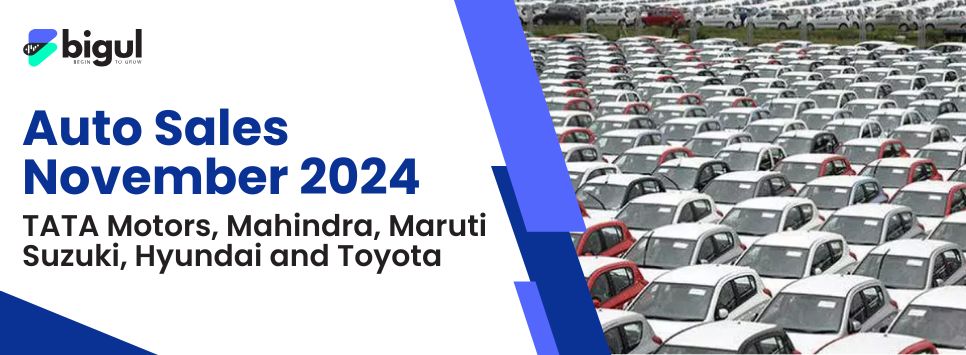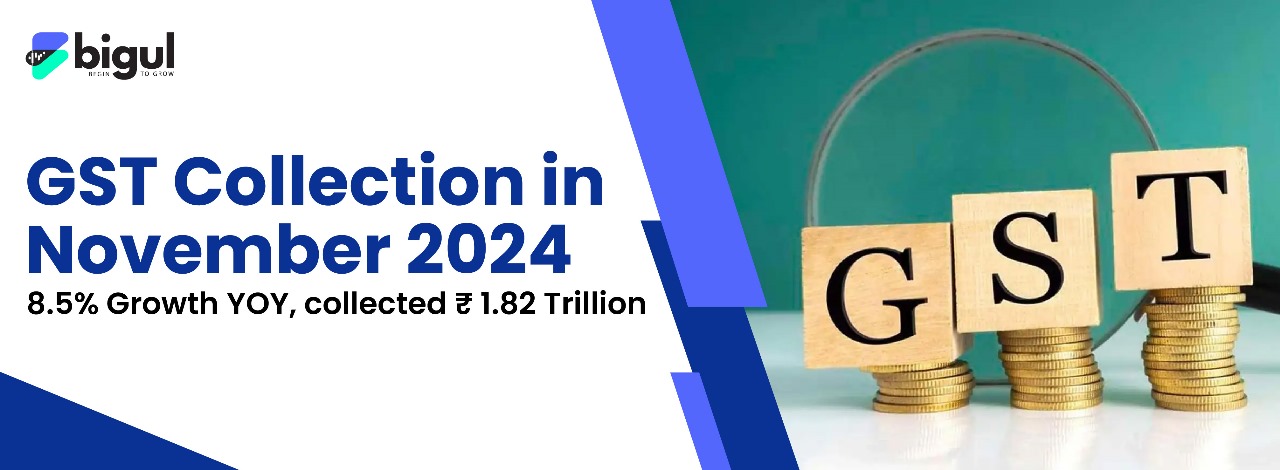GST collections for November 2024 have shown strong growth but lower than the previous month October 2024. GST for November rises by 8.5% year-on-year to cross Rs 1.82 trillion. This increase shows higher economic activity, especially during the festive season, and brings a positive outlook for the Indian economy. Here's a detailed view at the November 2024 GST collection data.
Breakdown of GST Collection
The total GST collections for November 2024 were divided
across key components as follows:
·
Central GST (CGST): Rs 34,141 crore
·
State GST (SGST): Rs 43,047 crore
·
Integrated GST (IGST): Rs 91,828 crore
·
Cess: Rs 13,253 crore
The growth was mainly driven by a 9.4% increase in revenues from domestic transactions, amounting to Rs 1.40 trillion. Additionally, tax revenues from imports grew by 6% to reach Rs 42,591 crore. Refunds worth Rs 19,259 crore were issued in November, marking an 8.9% decline compared to last year. After adjusting for refunds, net GST collection grew by 11% to Rs 1.63 trillion.
Comparison and Festive Season Boost
November's GST collections was 1.82 trillion that is reportd
lower than October's Rs 1.87 trillion. Typically, October's collection was
boosted by the festive demand. This shows how increased spending during the
festive season can benefit the government's tax collections.
Key points include:
· October 2024 recorded the 2nd highest GST collection at Rs 1.87 trillion, that is a 9% annual growth.
· The highest-ever GST collection of Rs 2.1 trillion was recorded in April 2024, highlighting the GST system's potential to generate revenue.
State-Wise GST Performance
Some states reported strong growth in GST revenues,
reflecting increased economic activity:
·
Jammu & Kashmir: 25% growth
·
Sikkim: 52% growth
·
Delhi and Tripura: 18% growth each
·
Mizoram: 16% growth
However, there were concerns for states with low or negative
growth, such as:
·
Haryana: 2% growth
·
Punjab: 3% growth
·
Rajasthan: -1% decline
·
Andhra Pradesh: -10% decline
These variations show an uneven recovery across regions, with manufacturing-heavy states like Rajasthan and Andhra Pradesh showing weaker performance.





.jpg)
 1.jpg)




.jpg)